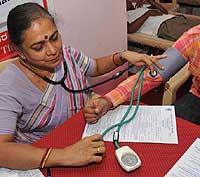Decaffeinated coffee may improve brain energy metabolism associated with type 2 diabetes. This brain dysfunction is a known risk factor for dementia and other neurodegenerative disorders like Alzheimer’s disease.
Vitiligo awareness – coping with emotional and psychological aspects of vitiligo
Vitiligo Awareness Day is observed on May 19 every year in India. I believe boosting the morale of vitiligo patients is important. Most vitiligo patients suffer psychologically due to the … continue reading

